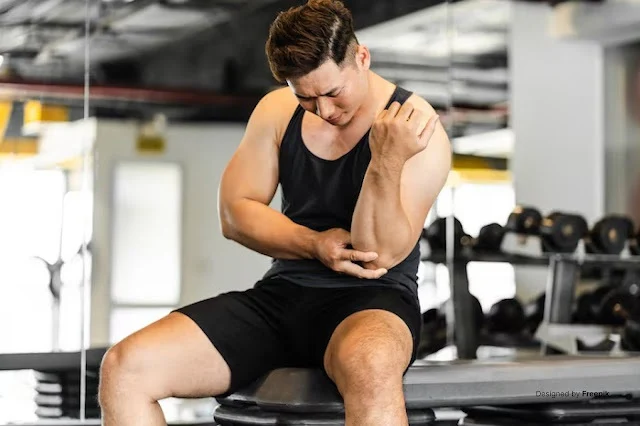- Get link
- X
- Other Apps
Featured Posts
- Get link
- X
- Other Apps
 |
9 Reasons Your Muscles Feel Weaker |
Muscle weakness can stem
from aging, illness and more. Discover common causes and how to improve
strength and function.
Muscle weakness, causes of
weak muscles, how to improve strength, fatigue, muscle health
Feeling weaker than usual?
Whether it's struggling to carry groceries or noticing less power during
workouts, muscle weakness can
be frustrating - and even alarming. The good news is, many causes are
reversible with the right knowledge and care.
Here
are 9 common reasons your muscles may feel weak, plus tips on what to do
about it:
1. Aging (Sarcopenia)
As we age, we naturally lose
muscle mass and strength - this condition is called sarcopenia. It
can start as early as your 30s and accelerate after 60.
What to do:
·
Prioritize strength training
·
Eat protein-rich foods
·
Stay active consistently
2.
Poor
Nutrition
Muscles need fuel -
especially protein, iron, magnesium and
vitamin
D. Deficiencies can make muscles feel tired or weak.
What to do:
·
Eat a balanced, nutrient-rich diet
·
Consider a multivitamin if recommended by a
doctor
3.
Lack
of Sleep
Your muscles repair and grow
while you sleep. Chronic sleep deprivation leads to poor recovery and muscle
fatigue.
What to do:
·
Aim for 7–9 hours of quality sleep
·
Practice good sleep hygiene (no screens
before bed, regular schedule)
4.
Dehydration
or Electrolyte Imbalance
Not getting enough water -
or losing electrolytes through sweat - can cause cramping and muscle weakness.
What to do:
·
Drink water throughout the day
·
Replenish electrolytes if you're very active
or sweat heavily
5.
Illness
or Infection
Viral infections (like flu
or COVID-19) can sap your strength temporarily. Chronic illnesses like diabetes
or autoimmune conditions can also cause muscle
weakness over time.
What to do:
·
Rest during illness and focus on recovery
·
Work with your doctor to manage chronic
conditions
6.
Medications
Certain medications - like
statins, steroids, or diuretics - can cause muscle fatigue as a side effect.
What to do:
·
Review medications with your doctor
·
Report unusual muscle symptoms right away
7.
Neurological
Disorders
Conditions like multiple
sclerosis, Parkinson’s disease, or
neuropathy
affect how nerves communicate with muscles, leading to weakness or coordination
problems.
What to do:
·
Seek medical advice for persistent or
unexplained weakness
·
Early diagnosis can make a big difference
8.
Stress
or Mental Health Struggles
Anxiety, depression, or
chronic stress can lead to physical fatigue, making your body feel heavier and
weaker.
What to do:
·
Manage stress through therapy, mindfulness,
or support groups
·
Exercise can boost both mood and strength
9.
Overtraining
or Inactivity
Both doing too
much and doing too little can
weaken muscles. Overtraining doesn’t give muscles time to recover, while
inactivity leads to reconditioning.
What to do:
·
Balance rest and activity
·
Follow a structured training plan with rest
days
What You Can Do Today
·
Exercise regularly,
focusing on both strength and flexibility
·
Eat well,
including adequate protein, vitamins and minerals
·
Listen to your body -
weakness is often a signal, not just a symptom
If muscle weakness is sudden, severe, or unexplained, see a healthcare provider promptly. It could be a sign of a more serious issue that needs attention.
 |
9 Reasons Your Muscles Feel Weaker |
- Get link
- X
- Other Apps

.png)
Comments
Post a Comment
💬 We’d love to hear your thoughts! Be kind, stay on topic, and let’s keep this space helpful for everyone.